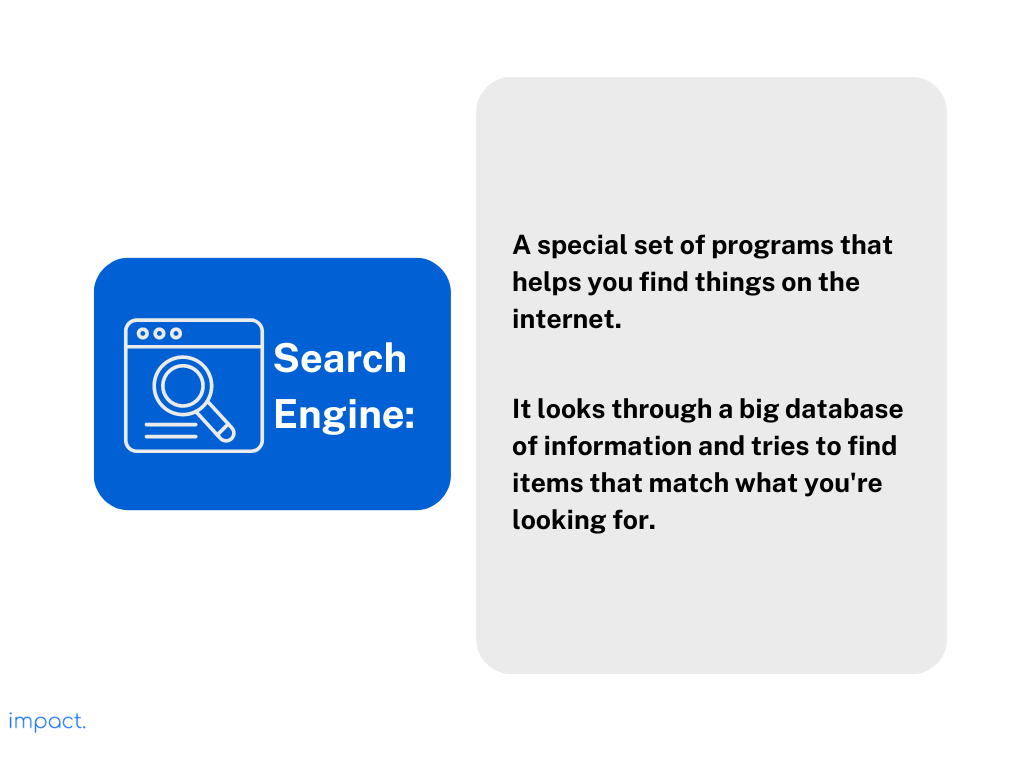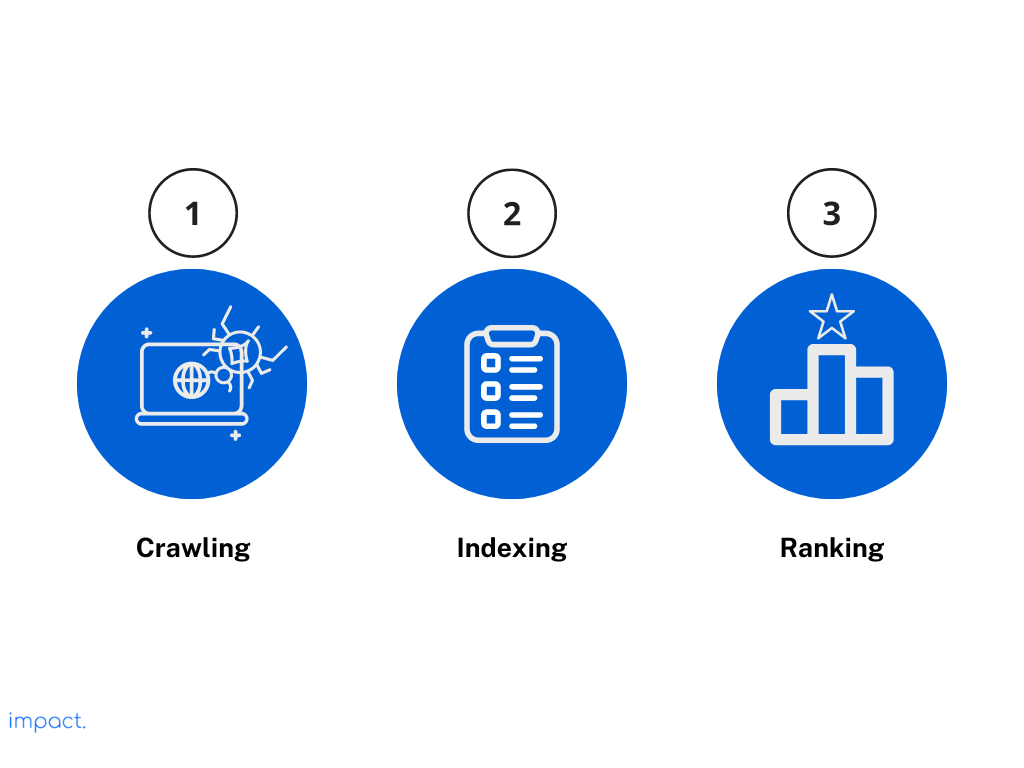Kanban: Definition, 6 Rules, and its Benefits
Kanban is a crucial part of the Just in Time (JIT) system, which we discussed…
Sean Thobias
May 17, 2025In our previous discussions about Search Engine Optimization (SEO), we learned the basic concept to help boost your online presence. Now, we will look closely at search engines and how they decide which websites appear at the top of search results.
Search engines have become a big part of our daily lives. We use them to find answers to questions, research topics we’re interested in, and discover products and services. However, have you ever wondered how search engines work behind the scenes? How do they pick which websites deserve the best spots on their search result pages?
In this article, we will explore the inner workings of search engines and the complex algorithms and processes they use to make those decisions. We will also give you six ways to rank higher on their results page.
A search engine is a special set of programs that helps you find things on the internet. It looks through an extensive database of information and tries to find items that match what you’re looking for.
You enter a few keywords to describe what you are searching for. The engine lists relevant web pages, images, videos, or other online content that closely matches your search. This list of results is called a search engine results page (SERP). It shows you all the relevant content the search engine found based on your search.

Search engines are significant for SEO (Search Engine Optimization). They decide how visible and high-ranking websites are on search results pages. SEO techniques help improve websites so that they meet the requirements of search engines and have a better chance of ranking higher.
Search engines look at keywords, how easy it is to use a website, how trustworthy it is, and how authoritative it is. Based on these factors, search engines determine which websites are the most relevant for a user’s search. By using SEO strategies, website owners can make their websites more visible, get more people to visit them, and have a better chance of reaching their target audience.
Read more: SEO Fundamentals: Key Definitions & 4 Best Practices
There are various search engines available today that help you find information on the internet. Some popular examples include Google, Bing, and Yahoo!, each offering unique features and services.
Google is the biggest search engine in the world, handling over 99,000 searches every second and more than 8.5 billion searches daily. It’s so popular that it has become synonymous with searching the internet, with people often saying, “I googled it” when looking something up online.
Bing is Microsoft’s search engine, created as an alternative to Google and released in 2009. It comes as the default search engine in Microsoft’s web browser. While Bing aims to improve, it still has much ground to cover to rival Google. Bing offers various services like image, web, video search, and maps. One notable feature introduced by Bing is “Places,” which provides information about local businesses and locations.
Yahoo! has been a strong competitor in the world of search engines. However, instead of doing all the work, it relied on other companies to handle its searchable index and web crawling. At first, it used Inktomi and then Google from 2001 to 2004. Later, in 2009, Yahoo! teamed up with Microsoft, allowing Bing to take over the tasks of providing the search index and crawling the web.
In China, Baidu is the country’s most popular search engine and acts as an alternative to Google, which is banned there. Founded in January 2000, Baidu provides web search results for websites, audio files, and images. In addition to search, Baidu offers various services like maps, news, cloud storage, and over 55 other internet-related services.
Yandex is a prevalent search engine in Russia and ranks as the fourth most visited website there. It is also widely used in Ukraine, Kazakhstan, Belarus, and Turkey. Besides its search function, Yandex offers services like maps, navigation, music streaming, e-commerce, mobile apps, and online advertising.
Ask.com, previously known as Ask Jeeves, is a question-and-answer community that provides answers based on a simple question-and-answer format. It incorporates many archived data to address users’ queries. However, it relies on an external search provider for search results. As a result, the information may not be as up-to-date as other search engines.
DuckDuckGo (DDG) is a search engine that values your privacy. Unlike other search engines, it doesn’t track or customize your search results based on personal information. Instead, it gives the same results to everyone. DDG also focuses on showing you high-quality search results; its interface is clean and free of too many ads.
A search engine comprises three essential components that help you find online information. Let’s take a closer look at each of them:
Search engines on the internet use complex algorithms to give you the right search results. But let’s break down the main process into three stages:
Now, let’s dive into each stage and learn more about them.

Search engines on the internet use complicated algorithms to provide you with accurate search results. Let’s simplify the main process. A typical Google search consists of three stages, although not all inquiries go through each step:
Here’s how Google’s crawling process works:
When the crawler discovers information, it must arrange, sort, and save it for later use by the ranking algorithm. Search engines store important details like the page title, description, content type, related keywords, incoming and outgoing links, and other factors that help determine a page’s ranking.
After crawling, Google’s indexing process follows these steps:
After collecting and organizing information from websites, the search engine determines the order of search results through ranking. The process involves assessing the relevance and quality of web pages. Here are some common factors used in ranking:
It’s important to understand that search engine algorithms constantly change as they undergo regular updates and improvements. The ultimate goal is to provide users with the most accurate and helpful search results, taking into account their intent, location, and personal preferences.
If you want your business to appear at the top of a Search Engine Results Page (SERP), you must take certain steps. Most people, around 90%, click on the results displayed on that page. To guarantee a high ranking when people search for your website, follow these guidelines:
Keyword relevance is one of the many factors that determine the rank of your website in a search engine. Therefore, you need to focus on using the right keywords. These keywords should be relevant to your website’s content and what your target audience is searching for. Conduct thorough research using keyword tools to find popular keywords that match your website’s theme.
Improving the elements on your website’s pages is important to rank higher on search engines. These elements include the title tags (the main heading of each page), meta descriptions (summaries of the page’s content), headers (subheadings that break up the text), and URL structures (the web addresses of your pages).
When optimizing these on-page elements, ensure you include your target keywords naturally and organically. The placement helps search engines understand your content and increases the chances of your pages appearing in relevant search results.
To rank higher on search engines, create valuable and engaging content for your visitors. Your content should be original and well-researched.
Additionally, it’s essential to understand why people are searching in the first place. When you know what your target audience is looking for, you can create content that meets their needs. By implementing this, you can increase your chances of obtaining a higher ranking and attracting the appropriate type of traffic.
Read more: Content Marketing: 7 Steps to Strategize for Success
To rank higher on search engines, having a strong and trustworthy network of links to your website is essential. You can do this by getting links from reputable websites in your industry.
Look for chances to write guest blog posts, collaborate with influencers, or form partnerships to help you gain valuable links. Remember, it’s better to focus on getting high-quality links rather than getting lots of low-quality links, as those could hurt your rankings.
Make sure your website loads quickly and works well on mobile devices. People expect websites to load within about 3 seconds. Around 40% of users may leave your site if it takes longer. Fast and mobile-friendly sites are more likely to appear higher in search results.
Improve website performance by compressing images, enabling browser caching, and minimizing unnecessary scripts. Also, logically organize your website and submit a sitemap to search engines.
By implementing these steps, you can enhance the overall performance of your website and make it easier for search engines to explore and list your site — increasing your website’s ranking.
Keep an eye on how your website is doing using tools like Google Analytics. Look at important numbers like how many people visit your site through search engines, how many leave right away, how many visitors turn into customers, and where your keywords rank in search results. Study this data to find out what needs to be improved and use it to make smart choices for your website.
Understanding how search engines work and the factors influencing website rankings is essential for improving your online presence. We’ve covered the inner workings of search engines, including crawling, indexing, and ranking. Using effective SEO strategies, website owners can optimize their sites to meet search engine requirements, making them more visible and increasing their chances of reaching their target audience.
In the next chapter, we’ll dive into the crucial topic of keyword research. Keywords are the words and phrases users type into search engines to find information or solutions. We’ll discuss how to conduct thorough keyword research to identify the most relevant and valuable keywords for your website.
Impact Insight Team
Impact Insights Team is a group of professionals comprising individuals with expertise and experience in various aspects of business. Together, we are committed to providing in-depth insights and valuable understanding on a variety of business-related topics & industry trends to help companies achieve their goals.
Ask about digital transformation, our products, pricing, implementation, or anything else.
We are excited to be part of your transformation journey from day one.
